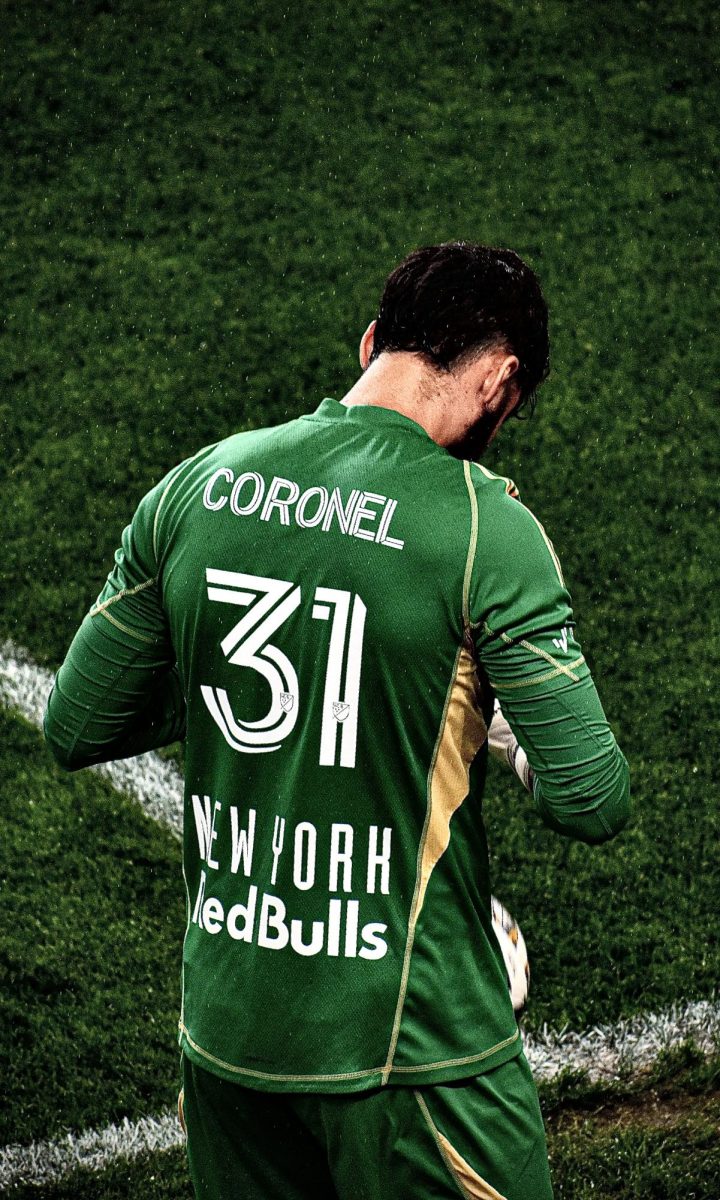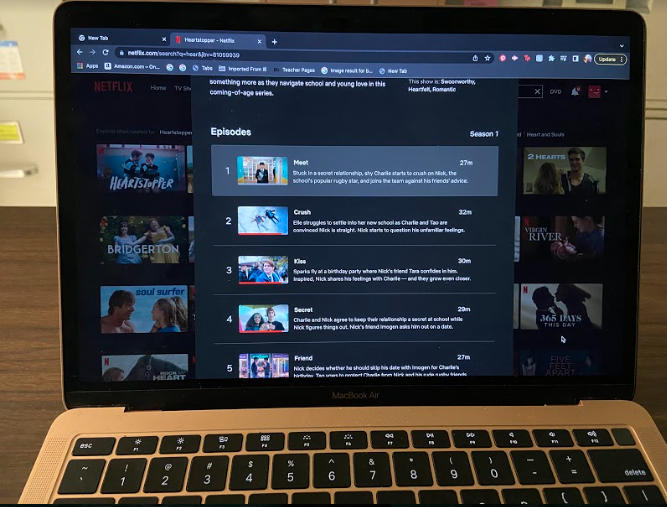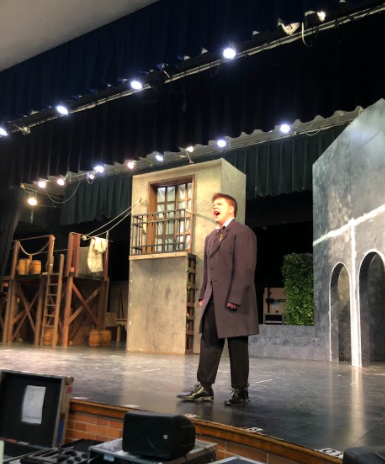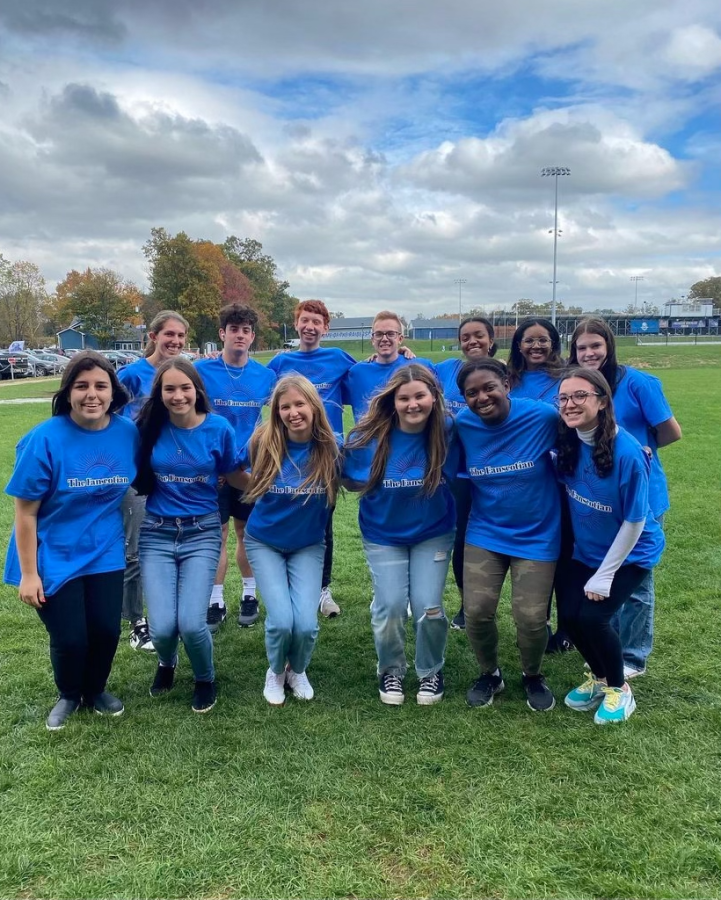by Ian MacPherson
Students are bombarded by information about colleges coming from all sides. From junk email imploring students to “apply now!” to online fora comparing elite universities based on superficial criteria, useless information can overwhelm and even misguide students. Guidance counselor Candace Kilmer shares her expertise in order to help students learn how to most effectively research college and prepare for life after high school.
Q: What are the most common concerns you observe that students have about finding information about colleges?
The first thing is that they typically don’t know where to start. I direct them to naviance because that’s a good way to get the ball rolling.
Q: What are some common myths about college, college research, or college admissions that you can dispel?
College websites try to make their colleges look fancy-shmancy. They’re showing the best of their college campus. I think it’s important to go and see the school to find out, “Is it as fancy as it is on a website?” Not always. I think that the whole college process is like you buying house. You’re searching for that perfect fit and formula– nothing’s going to be perfect. A lot of kids think it’s going to be perfect; it’s not. The idea is, is it going to fit all your needs as best it can?
I always say to the kids that really want the Ivy League, let’s say. If you don’t get into an Ivy League and you go to another good school, let’s face it, if you’re on an interview and another person’s on an interview and you go to Rutgers and he goes to Harvard, who’s getting the job is who’s interviewing the best. Do you want to have a good resume? Of course you want to have a good resume. You want to go to a good school. But it’s really okay if you don’t get into the Ivy League– that would be fabulous, I’ve had a number of students who get in the Ivy League– but it’s really okay if you don’t.
Q: There are so many websites that talk about college and claim to be authorities on the matter. How do you sort through it all, and where do you go to find the best, most accurate information?
Naviance is a useful tool– I like it for the transmission of documents electronically– but if you’re thinking more college search, I like the collegeboard website because I like how they give some student responses for particular schools. I also like a book that I think is also online, the Fiske Guide to Colleges, because it’s almost like a story about each school. For example, if I open up to the University of Michigan, it’s a story from a student talking about how they have class in x building and then they walk to the cafeteria and, you know, don’t order the chicken nuggets because they’re disgusting, you know, it’s that kind of a real life guide. I find it very useful, and sometimes I search for “are the chicken nuggets really bad?” It’s a lot about the cafeteria, the library, really the nitty-gritty beyond the academics that I like the Fiske. It also will state “The University of Michigan is similar to…” and it will list similar schools.
Q: Given the quantity of websites out there that provide information, is it still valuable to look at a “college book” like the Peterson’s Guide?
They’re all unique, Peterson’s, College Board, but your generation is so much about wanting to go into social media, so I don’t find the books as prevalent anymore, because a lot of colleges aren’t sending them and a lot of organizations aren’t putting them together anymore.
Q: How much can you trust rankings? Which organizations, if any, provide good rankings? How concerned should students be about rankings?
Look who’s putting out the rankings. It’s typically some sort of business, like U.S. News and World Report, and they’re gathering their data based on their own research. Do I trust it? To an extent. You can kind of see “What’s the best business school in the country?” It’s Wharton. It’s Stanford. I think we know that; some of that stuff is obvious just based on who’s getting the jobs out of Wharton, who’s getting the jobs out of Stanford, but I don’t rely on that 100%. I like to look at it and peruse. All those rankings and things, it’s interesting, but I don’t stick to it. It’s just interesting reading material.
Q: What are the most important criteria for the average college student to know before selecting a college?
What are the academics they’re offering; what are the internships that are available; what is the job rate after college; what is the living situation there; what is the social climate; do you feel like you want to be in the city, how on a train and be right in the city, or do you want to be in the middle of nowhere, I think location is important; I think the size is important. I went to a big school. That’s what I wanted. That’s what I felt most comfortable with, but I know that I have some students that want a school that’s really small. I always tell them, a small school is great, a large school’s great, they can make smaller, so that’s your decision. How far do you want to be from home?
Q: There is a lot of information out there about programs, statistics, or the like. This tells you a lot about the caliber of academics, but often not much about what the community experience will be like. What is the best way to find out more about the day-to-day experience of being in a college?
I certainly did an overnight at the college, because you get to go to the dorms, you get to go to the cafeteria, you get to go to a social event. I think that’s really, I really like when students do that. You get to see it firsthand.
Q: Who is best to seek advice from?
Talking to a college students at a school firsthand is key, to me. I also like talking with admission. I think, if I was looking back at colleges, what I see differently from () years ago as opposed to now is that x parent says this about x school, and x parent this about x school, and “that’s not a good school,” “that’s not a good school” [going back and forth]. For someone it [a college] can be good and for someone it can be not good. I think forming your own opinion, talking with students at the school and talking to admissions is key. Because, a large school was great for me, I don’t think a small school would have been great for me. I got all different opinions. “You’re going to a big school, you’re going to be lost, you’re just going to be a number, blablabla” and, you know. People are going to have their opinions.
Q: What can the counseling department specifically do to help students?
The college panel that we’re having in January, where we bring back alums– I already have two of mine coming– I just think it’s really good for juniors and seniors to hear back from our own current students, their experiences. It’s funny, I do that event, and I’ve seen more parents there than students, and I wish there were more students there, because I think it’s really applicable. They’re telling you whether the food there is great, how hard it is to get to classes or how not hard it is, or how it is being away from home. [IAN: More about the day-to-day life?] Yeah, that’s really why we started it.
Q: What is, in your opinion, the single best resource that students have to find out information about colleges, and why?
Naviance is a good place to start. I like to start my students with that in the process, particularly during the junior conference if not beforehand, just to get a list generated. Then I direct them to college websites or the Fiske. That’s my routine.
Q: Do you have anything you would like to add?
The process doesn’t have to be anxiety-provoking, that this is supposed to be exciting. You can make it fun, and you can have fun with it. I know the application process is like crazy. Everybody gets so anxious, but it’s really exciting, and maybe that’s why I do this job. I find myself still going to colleges every year and I just find that every campus is so unique, it makes me want to go back to college of course. That’s the beauty of being a high school students. It’s really an exciting time to be shopping around for what you want. Don’t let others persuade you that “you’re not going to this school, this one’s better, blablabla.” It has to be your own.








